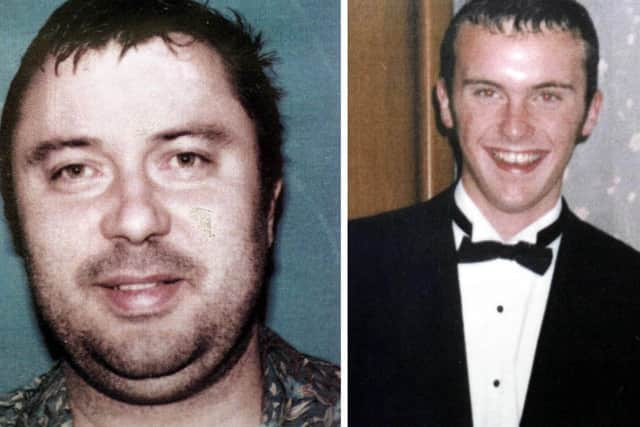Killer's £5,000 damages claim turned down by judge at Scotland's highest court


Beggs, who has cost the taxpayer more than £1 million in civil lawsuits since his murder conviction, demanded damages of £5,000 after claiming Scottish Prison Service(SPS) staff breached his human rights by opening his correspondence.
The 57-year-old's Northern Irishman's legal team told the Court of Session in Edinburgh that in an agreement the SPS he believed official correspondence would be treated as 'privileged' - the way mail from his solicitor is handled.
Advertisement
Hide AdAdvertisement
Hide AdBeggs claimed staff broke the agreement on three occasions in October and November last year by opening the mail, breaching article eight of the European Convention on Human Rights(ECHR).


The incidents related to two letters sent to Beggs, one about a medical condition and another containing legal advice.
The SPS accepted that staff had accidentally opened the legal letter but maintained that was opened to ensure there were no prohibited items inside.
Following a hearing, judge Lord Armstrong ruled prison officials had acted lawfully.
Advertisement
Hide AdAdvertisement
Hide AdIn a written opinion, he stated: "Having weighed in the balance the positive aspects of the petitioner’s prison record, against his high profile and the very serious consequences were any of the identified risks to materialise, I am satisfied that the referable acts of SPS were necessary and proportionate.
"I find that, in respect of the first two incidents, paying due regard to the whole facts and circumstances, the referable margin of
appreciation was not exceeded, that no violation of Article 8 ECHR occurred, and that the acts of SPS were not unlawful.
"In relation to the third incident, in accordance with the position of the respondents, I find that the petitioner’s legal correspondence was inadvertently opened by an office administrator on 12 November 2018.
Advertisement
Hide AdAdvertisement
Hide Ad"I find that, notwithstanding the petitioner’s stated resulting anxiety and frustration, to which I have attached due weight, he does not fall within the category of 'victim', as defined.
"That being so, in relation to the incident of 12 November 2018, he has no standing to claim the remedies he seeks."
Beggs has raised a string of cases since he was jailed for life in 2001 for murdering and dismembering teenage Tesco worker Barry Wallace at a house in Kilmarnock, Ayrshire, in 1999.
Police divers on a training exercise discovered two legs in Loch Lomond, later identified as being the limbs of Barry, 18. Beggs caught a ferry from Troon in Ayrshire to Belfast and dumped Barry's head overboard in a plastic bag. It was washed ashore and discovered by a woman walking her dog on the beach.
Advertisement
Hide AdAdvertisement
Hide AdBeggs fled to the Netherlands and fought against extradition but was flown back to Scotland to face justice and found guilty of murder. He was ordered to serve a minimum 20 years before applying for parole..
Earlier this year Barry's father, Ian Wallace, voiced anger at the amount of legal aid Beggs has been granted for his court actions.
Mr Wallace, from Kilmarnock, said: 'We can't understand why a murderer has been awarded public money so often and in such vast quantities to achieve private gain and to entertain himself when he is only in prison because of his own evil actions.
'When he has been in receipt of legal aid and the courts have decided his rights have in some way been breached, any award should have gone back into the legal aid fund."
Advertisement
Hide AdAdvertisement
Hide AdBeggs was previously convicted of a near-identical killing in England..
In 1987 he was jailed at Teesside crown court for the murder of Barry Oldham, a 28-year-old student whose body was discovered on the North York Moors.
The victim's throat had been slashed and efforts had been made to cut off his arms and legs. Beggs, who had met Oldham at Rockshots gay nightclub in Newcastle, claimed in court that he had acted in self-defence after Oldham had attacked him during a camping trip.
Two years later the court of appeal quashed the murder conviction after ruling that the judge had improperly allowed evidence of previous alleged attacks by Beggs to be heard by the jury.